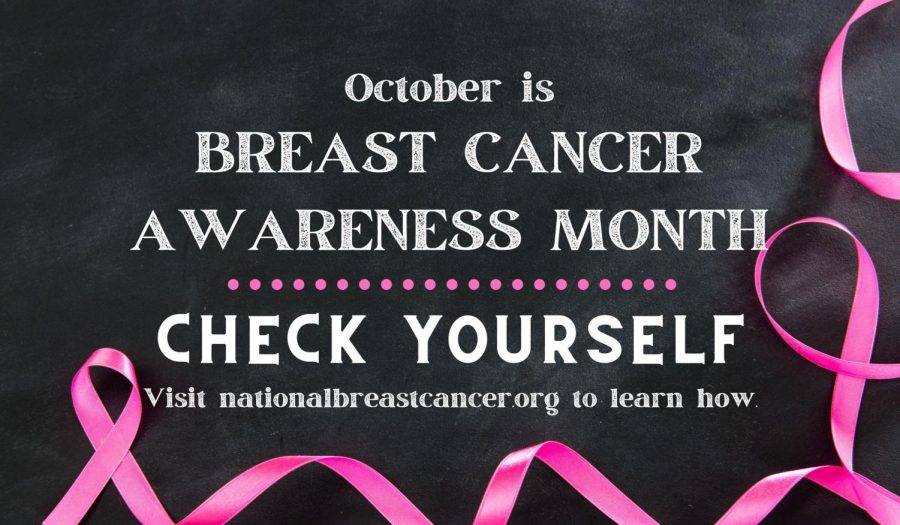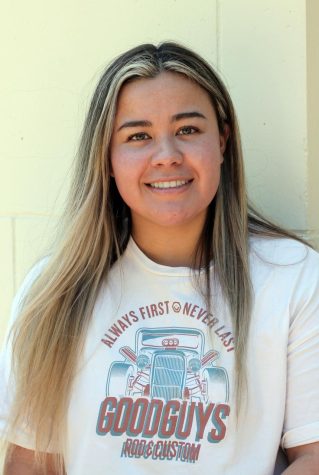Check yourself
Early detection is key to beating breast cancer
Breast Cancer Awareness Month is an annual international health campaign organized by major breast cancer charities every October to increase awareness and to raise funds for research into cause, prevention, diagnosis, treatment and cure. It is also to educate people on the importance of early screening and self-examinations. To learn more, visit nationalbreastcancer.org.
October 8, 2020
It is estimated that 325,010 people will be diagnosed with breast cancer in the United States in 2020. This form of cancer is the most common. It is estimated 12 percent of women will be diagnosed with the disease in their lifetime. It is most common in women ages 15 to 39. Men are also at risk for breast cancer. However, they account for less than 1 percent of cases.
It is important for people to be aware of the risks, even at a young age. Any cancer diagnosis can be terrifying, but early detection is the key to a better chance of survival. According to the Young Survival Coalition, nearly all young women find their breast abnormality on their own.
To find abnormalities, home examinations are critical. The National Breast Cancer Foundation recommends all women perform self-examinations every month. There are several ways to do this, but the simplest method is to conduct a self-check in the shower. The NBCF instructions state, “With the pads/flats of your 3 middle fingers, check the entire breast and armpit area pressing down with light, medium, and firm pressure. Check both breasts each month feeling for any lump, thickening, hardened knot, or any other breast changes.” Men performing a self-exam should feel for a hard lump beneath the areola.
Most women will not need annual mammograms until their forties. However, those with a family history of cancer should consult their doctor about possibly beginning mammograms at an earlier age.
Being aware of changes can help save your life. To learn more about the disease or how to perform other types of self-exams, visit nationalbreastcancer.org.


